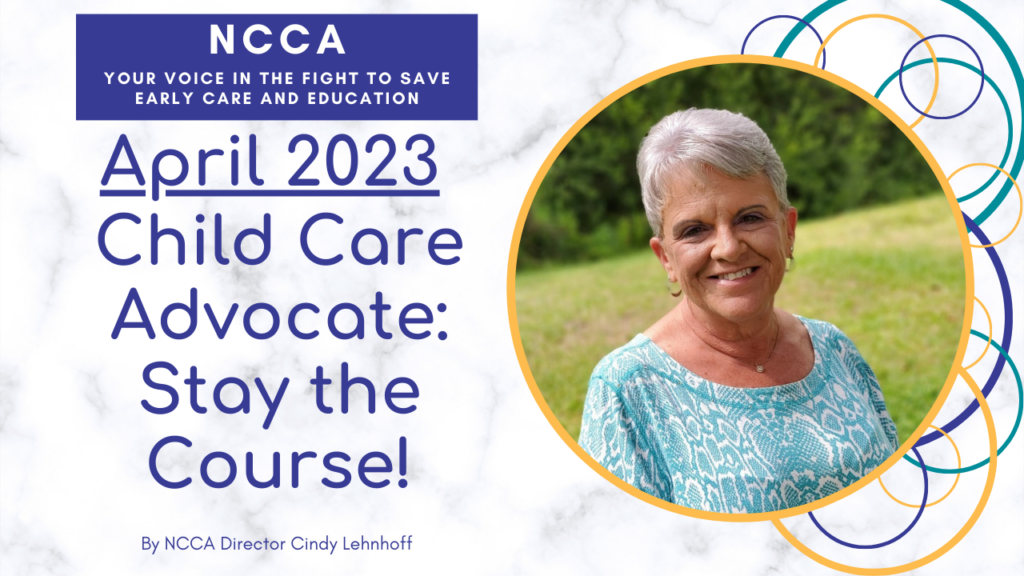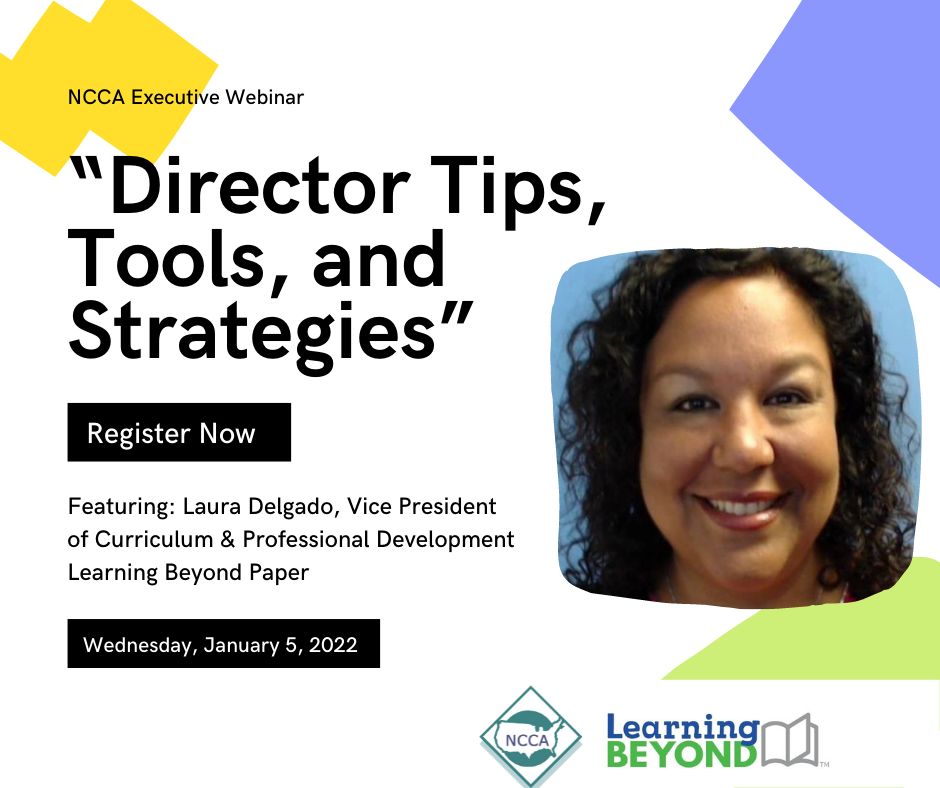Below are summarized recent ECE actions and updates. Click to learn more.
- Federal Update & Take Action
Now that we are past the debt ceiling crisis, Congress is now turning its attention to the annual appropriations process. House Republicans are already planning to introduce funding proposals even lower than the capped amounts in the debt ceiling agreement: “The one thing you’ve got to realize, whenever you put a cap, that’s the ceiling,” he said. “We can always spend less. I’ve always advocated for spending less money. Later, McCarthy put a finer point on it: “If we can write [spending bills] to even lower levels, then we should do it in the House.” More: Deeper spending cuts may be in play to break House deadlock – Roll Call
Congress must hear from families, providers, and advocates about the very real need for robust investments in child care and early learning.
Take Action
- Urge lawmakers to support annual funding for child care – Child Care Aware® of America
- Tell Congress To Oppose Cuts to Critical Programs for Families | Think Babies™
ATTEND/WATCH: The US Senate Finance Committee is hosting a hearing, Anti-Poverty and Family Support Provisions in the Tax Code, on Wednesday, June 14 at 10 am ET. Watch here. Witnesses include:
- Amy K. Matsui, Senior Counsel and Director of Income Security, National Women’s Law Center
- Melissa Lester, MomsRising Mom from Galloway, Ohio
- Bruce Meyer, Ph.D., McCormick Foundation Professor, Harris School of Public Policy, University of Chicago
- Grant Collins, President, Fedcap Inc.
Please don’t hesitate to reach out with any questions or opportunities for collaboration.
- Brief – Expanding Access to Child Care Assistance Opportunities in the Child Care and Development Fund
From the Center for Law and Social Policy (CLASP):
Families nationwide are struggling with a lack of affordable and accessible child care. This was true prior to the pandemic and even more so as the sector recovers from the detrimental impacts. The Child Care and Development Fund (CCDF) program—the primary federal funding source for child care assistance—seeks to address access to affordable care for families with low incomes. Historically and presently, however, it has not been adequately funded, with only 1 in 6 eligible families receiving support in 2019. Complex and burdensome rules and requirements at the state level have made it even more challenging for families to access and retain child care assistance. This is especially true for families of color and families with low incomes. The child care and early education system was built on deeply rooted, structural racial and gender discrimination.
In a new brief, CLASP lays out key ways to improve access to child care within the current CCDF program and recommends how state leaders can: (1) understand the federal guidance and flexibility within the CCDF regulations; (2) assess a range of policy considerations for state child care agencies; and (3) review promising strategies that different states have adopted to improve access. This brief includes opportunities across four main areas:
- Improving Information Access and Outreach
- Simplifying the Application and Streamlining Eligibility
- Increasing Affordability
- Recruiting Providers Who Meet a Range of Family Needs
Despite funding constraints, state child care agencies can maximize their limited resources to equitably increase access to child care assistance programs nationwide. This brief will be a helpful tool to assist in the process.
- State Examples – CSCCE launched the second year of the Bold on Early Educator Compensation Learning Community
From the Center for the Study of Child Care Employment (CSCCE):
In May, CSCCE launched the second year of the Bold on Early Educator Compensation Learning Community. Leaders from seven states met to share promising examples of states like Illinois using contracts and grants to programs to support compensation. We also learned that the need to support providers with the administrative burdens of application and reporting continues, as well as the need to ensure educators know what they are entitled to receive. In a discussion of raising subsidy rate reimbursements to providers, we heard about the importance of meeting the true cost of care, including adequate compensation, and the difficulty of filling funding gaps. We also discussed the urgent need for and challenges that arise when increasing educator access to benefits like health insurance, paid time off, and retirement.
Learning Community participants are committed to equity and centering educator voices. Though challenges and questions remain, this group is eager to learn together and translate learnings to action on compensation. Check out the project webpage for a list of participants and presentation content.
- Annual Children’s Week
From First Focus:
Each June, First Focus on Children hosts Children’s Week with a schedule of events aimed at urging Congress to better protect the health, safety, and well-being of America’s children. This year, Children’s Week shines a light on the challenges facing our children — challenges like hunger, homelessness, poverty, gun violence. But we must act in the best interests of our children each and every day. This year, beginning on June 11th — Children’s Day — we look forward to working with members of Congress and our partner advocates to make caring for our children the norm, not the exception. Our kids can’t wait any longer for adults to do right by them.
More resources and a schedule of events can be found here.
- Snapshot – Top Latino Metro Areas Saw Large Declines in Child Care Employment Early in the Pandemic, with Slow Recovery Among Latino Child Care Workers
From the National Research Center on Hispanic Children & Families:
The COVID-19 pandemic negatively affected employment across many occupations. The child care industry and child care workers were particularly hard hit, experiencing employment losses at the onset of the pandemic that surpassed overall employment declines in the United States for workers in all other occupations combined. The child care sector has also rebounded more slowly than other employment fields. To examine how one aspect of the sector—specifically, child care workers in Latino communities—fared during the pandemic and the subsequent recovery, we build on a recently published national analysis of the child care workforce from the University of Michigan’s Poverty Solutions. We focus here on metropolitan areas with high densities of Hispanic populations—defined as metropolitan areas in which more than 20 percent of residents identify as Hispanic, the majority of which are located across six states.
Our analysis found that unemployment rates among child care workers in high-Hispanic-density metropolitan areas increased more steeply at the onset of the COVID-19 pandemic and that unemployment rates among child care workers in these areas recovered more slowly than for workers in all other occupations combined. We also found that, in 2022, there were fewer Latino child care workers relative to the 2019 pre-pandemic baseline, especially in high-Hispanic density metropolitan areas.
- Resource Series – Home-Based Child Care Supply and Quality (HBCCSQ) project
From Home Grown:
OPRE, Erikson Institute, and Mathematica have released a series of resources that look to fill gaps in the knowledge base of home-based child care. The analyses included in these reports were conducted as part of the Home-Based Child Care Supply and Quality (HBCCSQ) project.
- A National Portrait of Unlisted Home-Based Child Care Providers: Caregiving Histories, Motivations, and Professional Engagement → Download Resource
- A National Portrait of Unlisted Home-Based Child Care Providers: Learning Activities, Caregiving Services, and Children Served → Download Resource
- A National Portrait of Unlisted Home-Based Child Care Providers: Provider Demographics, Economic Wellbeing, and Health → Download Resource
- Briefs – Centering families in early childhood systems
From Child Trends and Start Early:
Child Trends and Start Early have partnered to better understand how to build and support more equitable early childhood systems. In two new briefs, Northwestern University’s Maia Connors (formerly of Start Early) and Child Trends’ Katherine Paschall explore what it means for an early childhood system to be “family-centric” and how early childhood systems can better engage families.
In the first brief, Connors and Paschall characterize a successful family-centric early childhood system as one that practices authentic and inclusive family engagement and results in positive, equitable, and supportive experiences for families. The authors suggest that early childhood leaders and families work together to determine what success looks like within their communities. In the second brief, Paschall and Connors examine the role of family engagement in developing family-centric early childhood systems. The authors explain four elements that are critical to strengthening families’ voices in family-centric early childhood systems:
- Stronger connections with grassroots community-based organizations
- Leadership dedication and capacity (i.e., leaders with the capacity and authority to change early childhood systems)
- Formalized ways of collecting, sharing, and using information
- Flexible funding to prioritize families’ engagement and voices
These briefs, called Conversation Starters, are part of a series that aims to define a new framework for early childhood systems that center families’ experiences, and to raise key considerations and next steps for implementing the framework.
- Brief – State and Local Strategies to Strengthen Infant and Toddler Care During Pre-K Expansion
From New America:
State and Local Strategies to Strengthen Infant and Toddler Care During Pre-K Expansion
A new brief released this week focuses on strategies for avoiding unintended consequences for infant and toddler care when expanding pre-K. I highlight policies put in place by Multnomah County (Oregon), Colorado, and Washington, DC, such as establishing an infant and toddler set-aside and growing the supply of licensed family child care providers.
You can check out the full brief here.
- Webinar – Investing in Our Future: Using Economic Well-being Innovation to Create Systemic Change in Child Care
From The Asset Funders Network:
Using Economic Well-being Innovation to Create Systemic Change in Child Care
June 14th
10am PDT / 1pm EDT (60 minutes)
The last few years have clarified and highlighted the challenges our society faces around the provision of affordable quality child-care; home-based child care has been a bright spot during the pandemic demonstrating remarkable resilience and supporting critical services for families. Despite this, we know the sector is actively failing; parents can’t find and afford care and providers are going hungry and leaving the field. While dysfunction and inequity in this sector existed long before the pandemic they were deepened due to missed opportunities for catalytic federal policy change such those included in the Build Back Better package (permanent Child Tax Credit and child care entitlement).
As we look to solutions which support child care providers, parents and the children there are opportunities to apply learning from the economic justice field to the care sector.
Organizations around the country have supported a variety of direct cash payments to diverse populations around the country and now there are pilot programs involving child care providers. This approach can be a powerful tool to address provider compensation but getting to the policy solution will take active, ongoing policy advocacy fueled by the outcomes of these programs.
Join us to gain a deeper understanding of:
- The need for and opportunities for connecting/integrating income supports + asset building opportunities for child care providers
- How ongoing unrestricted cash supports are changing the financial health of home-based child care providers
- Longer-term policy solutions which advance both income + asset building supports
- Philanthropy’s role in supporting these long-term policy solutions
Speakers:
- Natalie Renew, Home Grown
- Jessica Cafferty, King County
- Alexandra Patterson, Home Grown
- Krista Scott, The Robert Wood Johnson Foundation (RWJF)
- Child Care and Early Learning in the News
- Employers Can’t Solve the Child-Care Crisis – The Atlantic
- No, Grandma and Grandpa Can’t Babysit Tonight – WSJ
- As US aims to bring back manufacturing, supporting women is key | Business and Economy | Al Jazeera
- Mom’s Email Signature Captures Struggle For Working Parents (today.com)
- The Looming Child Care Cliff – The American Prospect
- Childcare Is About to Get Even More Expensive at the End of September (businessinsider.com)













